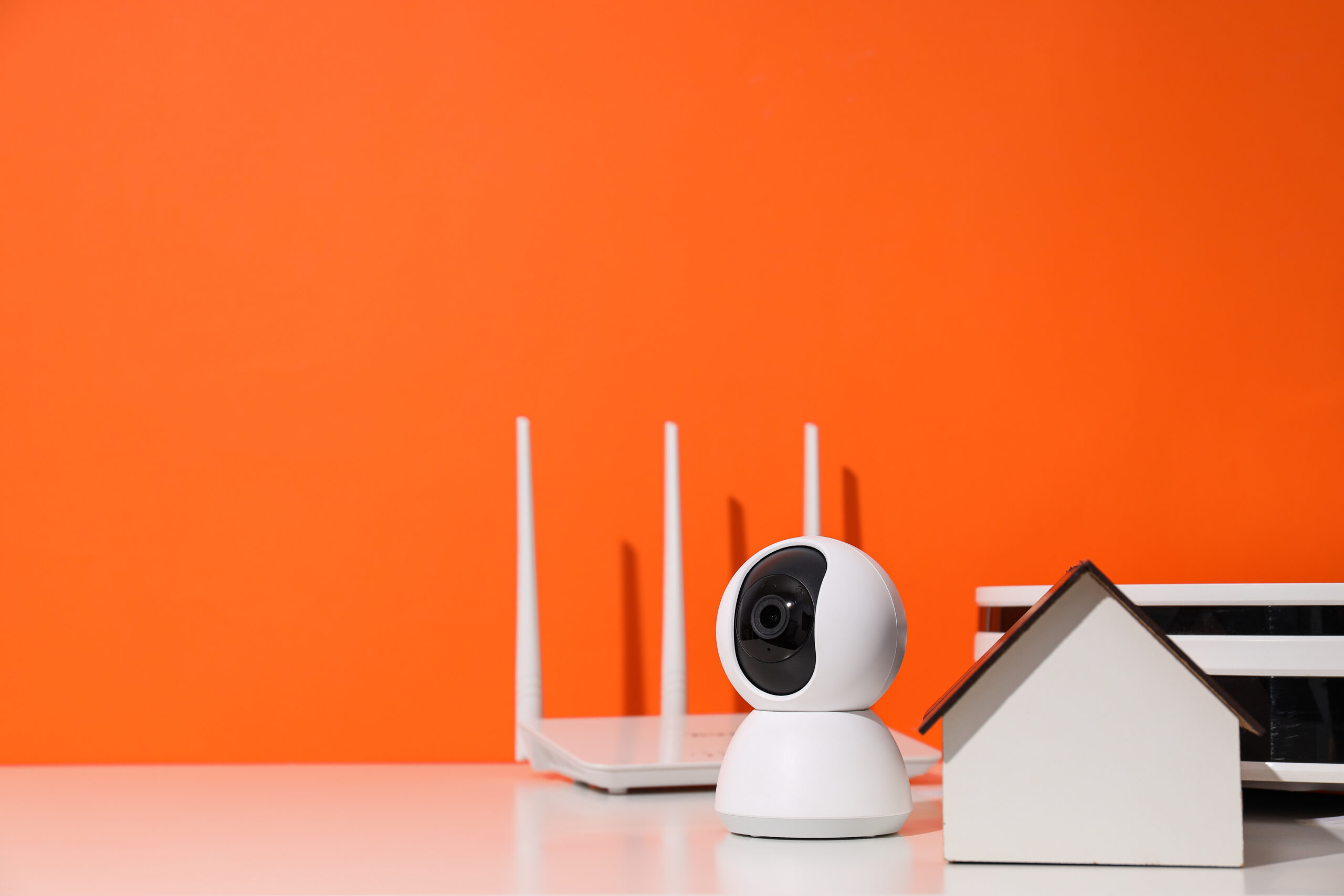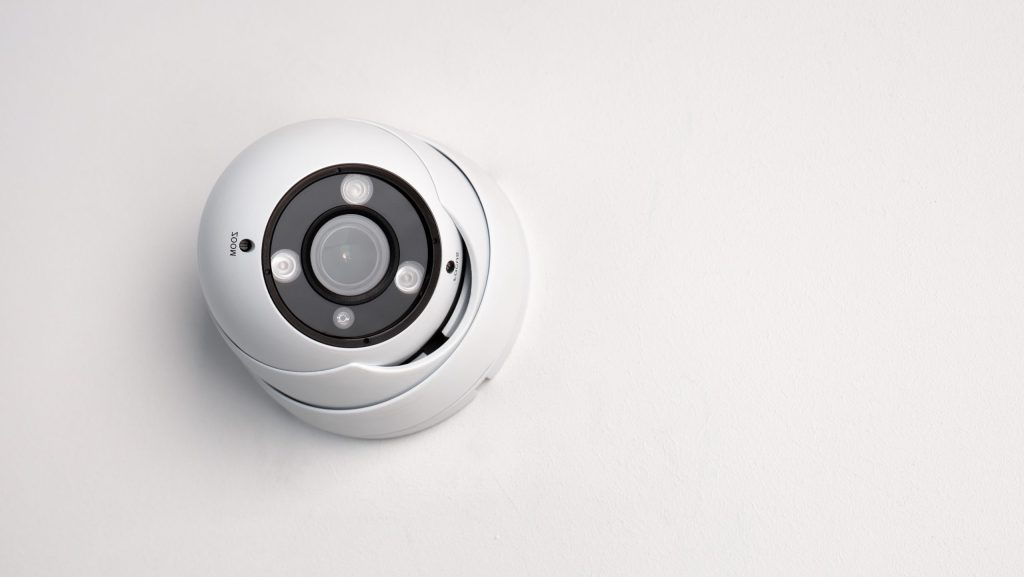Home Security System Without Landline: Modern Solutions

Smart home alarm systems are popular now. About 1 in 3 American homes use these new systems instead of old ones needing landlines [1]. The new systems give more freedom and safety. They use cell signals and smart technology to protect homes. They connect to cell towers so people can install anywhere. They use cell signals to call for help if there’s an emergency.
Some even call the homeowners too. People can control them from their phones when away from home. They can check if doors are locked and turn the system on or off. Some systems detect smoke and carbon monoxide. Others know the difference between an intruder and a pet. This stops false alarms. Keep reading to find out the alternatives of home security system without landline.
Key Takeaway
- Home security systems without landlines use cellular signals and the internet.
- They offer features like remote access and smart home integration.
- Many systems provide backup power to keep working during outages.
How They Work
Home security systems without landlines have some clever ways to let monitoring teams know if something goes wrong. Here are the main tricks they use:
Cell Phone Signals: These systems use cell signals to send messages. If an alarm goes off, it can quickly call for help. The systems don’t need wires that thieves could cut.
Internet Connections: Some systems use Wi-Fi to send alerts. They need a good internet connection to work right. But that lets homeowners check on their house from anywhere.
VoIP Calling: Some systems can make calls over the internet instead of normal phone lines. This is called VoIP or Voice over Internet Protocol. But not every security company supports this yet.
These new systems are reliable. They can even work if the power goes out! Having different ways to call for help gives homeowners more choices. It also makes the systems flexible to meet their needs.
Advantages of No-Landline Systems
There are lots of good reasons for getting a home security system that doesn’t need a landline. Here are some of the big ones:
More Safety: Cell systems are safer. They don’t use wires that robbers can cut. So there’s less chance a burglar can turn the system off.
More Flexible: Wireless systems are easy to put in and move around. If someone changes the layout of their house, the security system can move too.
Remote Access: Many systems have phone apps. So users can check their house and change settings from anywhere. They can get alerts on their phone if something’s wrong [2].
Home Automation: Some systems work with smart devices in the house. So users can control lights, locks, and more from their phone. They can set schedules or turn things on and off when they’re away.
These benefits make no-landline security systems great for many people. They give a mix of safety and convenience that fits with modern life.
Popular Options for No-Landline Security Systems
There are a few different kinds of home security systems that don’t need landlines. Here’s a quick look at some of the main choices:
Professional Systems – These get very high ratings. You can either have pros install them or do it yourself. The equipment starts at about $599. Contracts are 36 months.
DIY Systems – People rate these pretty good too. You can get pros to install them or put them in yourself. The equipment starts at around $199. You can choose monthly or yearly contracts.
Flexible Systems – These get great ratings. They’re made for DIY installing. The equipment starts at about $79. You can pick 1 or 3 year contracts.
Professional systems offer reliable service and good cell backup. They often come with pro installation to make sure everything’s set up right.
DIY systems are popular for people who want to install their own security. They often cost less and let users control more.
Flexible systems are good DIY choices with flexible plans at reasonable prices. Users pick how long they want to stick with the service.
The right system depends on what someone needs and likes. Each kind has its own benefits that can fit different lifestyles and budgets. [3]
Considerations When Choosing a System

Picking the right no-landline security system means thinking about some key things:
Quality of Equipment: Make sure the system is sturdy and works right. Read reviews to see how well it does in real homes.
Backup Options: Choose a system with battery backup for power outages. That way it still works if electricity goes out.
Installing It: Decide if you want to set it up yourself or get a pro to help. Some people like DIY systems since they’re more flexible.
Company’s Reputation: Check out the company’s history and what others say. A good reputation means users can likely get help when needed.
Taking time to think about these things can lead to a better pick. It helps ensure the system chosen will fit the home and family’s needs.
FAQ
How Do Modern Security Systems Work Without a Landline?
Modern security systems now use cellular networks like 4G LTE instead of traditional telephone lines. These cellular alarm systems provide real-time monitoring through mobile apps, allowing you to stay connected even during power outages. Smart technology lets you control your system using cell phones, and many options like Amazon Alexa and Google Nest offer seamless integration for comprehensive home protection.
What Are the Pros and Cons of Cellular Security Systems?
Cellular security systems offer several advantages: you can save money on monthly fees, enjoy wide-range coverage, and get peace of mind with backup battery options. The pros include flexible monitoring plans and no reliance on landline phones. Potential cons might involve equipment costs and contract lengths. Base stations and control panels now come with advanced features like motion detection and security cameras.
How Much Does a Modern Security System Cost?
Equipment and monitoring costs vary widely. Top security companies offer free quotes and different cellular system options. Typical expenses include initial equipment costs for items like indoor and outdoor cameras, smart locks, and video doorbells. Monthly monitoring plans range from basic to comprehensive, with prices depending on the type of system, features, and the alarm company’s specific offerings.
What Equipment Do Cellular Security Systems Include?
A typical cellular security system includes a base station, control panel, security cameras, motion detectors, and smart locks. DIY security setups and professional installations both offer similar core equipment. Many systems integrate with smart home devices like Amazon Alexa and Google Nest. The centralized system connects through cellular networks, providing reliable communication even without traditional telephone lines.
How Reliable Are Cellular Security Systems?
Cellular systems are highly reliable, using robust cellular networks for alarm signals and monitoring. Backup battery options ensure continuous protection during power outages. Central station monitoring remains active through cellular service, offering consistent communication. Security experts recommend these systems for their reliability, real-time updates, and ability to work independently of landline infrastructure.
Can I Monitor My Security System Remotely?
Most modern security systems include mobile apps that let you monitor your home from anywhere. You can view security camera feeds, receive real-time alerts, and control smart locks using your cell phones. These apps work through cellular networks, providing convenient, instant access to your home security system’s status and features.
What Should I Consider When Choosing a Security System?
Consider factors like monitoring plans, contract length, equipment costs, and cellular network coverage. Look for systems with features such as motion detection, indoor and outdoor cameras, and smart home integration. Compare customer service quality, monitoring costs, and the flexibility of different alarm companies. A security expert can help you find the best system for your needs.
Are There Different Types of Home Security Monitoring Plans?
Security companies offer various monitoring plans to fit different needs and budgets. Some plans include self-setup options, while others provide full-service installations. You’ll find plans with different contract lengths and service levels. Some focus on basic alarm monitoring, while others offer comprehensive protection with video surveillance, smart home integration, and advanced security features.
Final Thoughts
Home security systems without landlines are great for safety without old phone lines. These systems use new technology for security, flexibility, and convenience. Families can find one to fit their needs without needing landline service. The systems use cell signals or internet to contact for help. Some let users control things from their phone. These modern options provide safety and flexibility. Families can feel secure without needing a landline.
References
- https://www.coolest-gadgets.com/smart-alarm-systems-statistics/
- https://www.safewise.com/home-security-faq/security-system-without-phoneline/
- https://www.security.org/home-security-systems/no-landline/